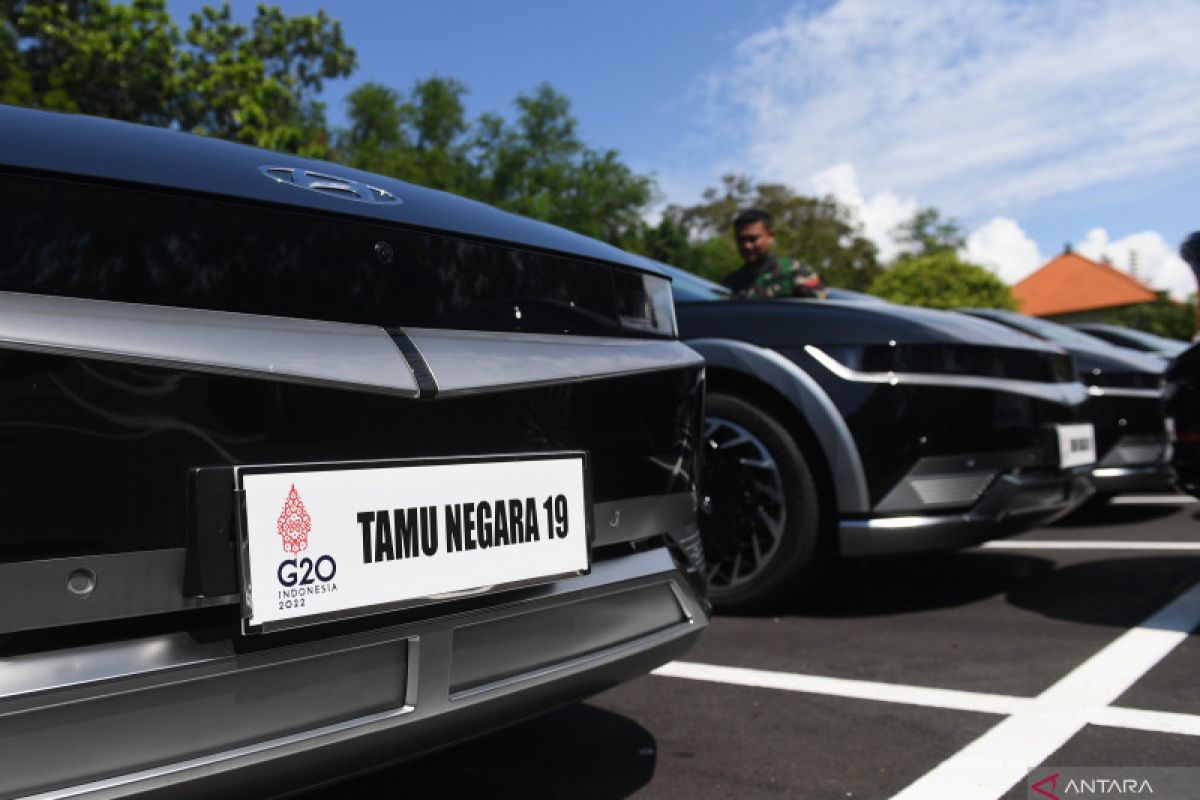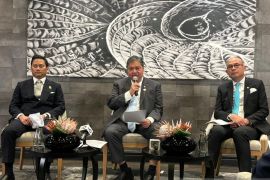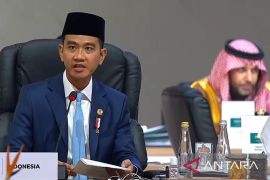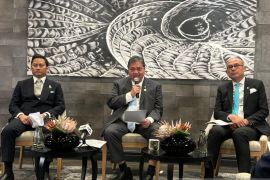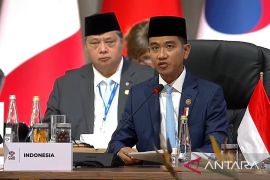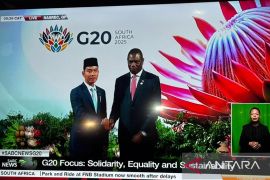To support its commitment to the sustainable energy transition, Indonesia has deployed electric vehicles (EVs) for the G20 Summit, which is being held in Nusa Dua, Badung, Bali, on November 15 and 16, 2022.
A total of 1,452 electric vehicles have been prepared for delegates attending the event. They comprise 962 electric cars, 454 electric motorcycles, and 36 electric buses.
According to State Secretary Minister Pratikno, in line with the energy transition agenda, the use of electric vehicles during the G20 Summit is also aimed at reducing carbon emissions.
The government's seriousness about reducing emissions has been emphasized by the issuance of Presidential Regulation Number 7 of 2022 regarding the use of electric vehicles for official purposes by central and regional governments.
In the regulation, President Joko Widodo (Jokowi) has instructed all government officials, from ministers to regional heads, to formulate and implement a regulation to support the acceleration of electric vehicle use in the country.
He has also called for the preparation of budget allocations for supporting the program.
Earlier, at the Bloomberg CEO Forum held ahead of the G20 Summit in Bali on November 11, Coordinating Minister for Maritime Affairs and Investment, Luhut Binsar Pandjaitan, had said that the procurement of vehicles for government officials next year must consist of electric vehicles in a bid to raise the community's interest in buying and using electric vehicles.
The government is planning to provide subsidies for the purchase of electric cars and motorcycles in 2023 to promote their widespread use.
Related news: G20 presidency can intensify cooperation to protect biodiversity: BRIN
Currently, the subsidy scheme is still being discussed, including the determination to prepare a subsidy of Rp7.5 million for each electric car purchase so that EV prices can become competitive with the prices of gas-fuelled cars.
"No one will buy electric cars if they are more expensive than gas-powered cars," Pandjaitan said.
The government is also discussing plans to cut taxes for electric vehicle users and provide import incentives to electric vehicle industries that build their factories in Indonesia.
Those policy plans will continue to be finalized and are targeted to be completed by the end of this year.
According to the Toyota Mobility Foundation's executive program director for the Asia-Pacific region, Pras Ganesh, three supporting factors are needed for the development of electric vehicles: first, accelerating the use of renewable energy; second, encouraging local production and manufacturing by utilizing the potential of domestic renewable energy; and third, attracting consumers with competitive prices and subsidies.
Within Indonesia, some of the challenges to electric vehicle adoption are the market and the types of vehicles, which vary, as well as the high price of renewable energy.
Related news: World experiencing extraordinary challenges: Jokowi
Small cars or B-segment cars account for about 50 percent of the market in Indonesia. Meanwhile, commercial vehicles or light commercial vehicles make up 20 percent of the market. Therefore, about 70 percent of the market already has different categories of electric vehicles.
Given the scenario, it is necessary for the government to understand the market and its diversity and strengthen the potential of the nation’s renewable energy, including through the development of nickel and battery cell industries, to support electrification in the transportation sector.
Indonesia needs to create conditions that can help bring down prices, such as providing subsidies and policies that support infrastructure and the electric vehicle industry.
"This is the area that we are currently working on, including with several SOEs (state-owned enterprises), for example, in Indonesia, to increase the ability to manufacture electrical components or electrification," he said at the forum.
Related news: President Jokowi presses for ending war, maintaining collaboration
Shifting to electric vehicles
Finance Minister Sri Mulyani Indrawati has highlighted the vast potential for the development of electric vehicles in Indonesia, which is supported by the growth of middle- and upper-class households.
Given the global commitment to fighting climate change, it is believed that the trend of transportation will shift toward electric vehicles.
"And Indonesia will position itself very well not only to provide a real investment climate and to offer a large domestic market," Indrawati said.
Domestically, Indonesia has also used fiscal instruments to advance the electric vehicle market.
Earlier, the government set the tax based on the size of vehicle engines, now it is imposing the tax based on the CO2 emissions of vehicles. The lower the emissions, the smaller the tax that needs to be paid.
The minister said she believes that the policy would be able to change the behavior of Indonesian people and encourage them to use electric vehicles that are more environmentally friendly.
Related news: G20 believed to be catalyst for inclusive economic recovery: Jokowi
The government is targeting to put at least two million electric vehicles on Indonesian roads by 2025.
According to data from the Ministry of Transpiration, 22,671 electric vehicles have received the type test registration certification as of July 2022.
The figure reflects an increase of 41.16 percent, or equal to 6,611 units, compared to the figure recorded in March 2022, when it stood at 16,060 units.
According to the Ministry of Industry, for developing the electric vehicle industry ecosystem, the domestic automotive industry is targeting to produce 600 thousand units of electric cars and electric buses by 2030.
With this number, the electric vehicle ecosystem is projected to reduce fuel oil consumption by 3 million barrels and slash CO2 emissions by 1.4 million tons.
Related news: NTB supports sustainable ocean development through industrialization
Related news: Pre-Employment Card Program encourages financial inclusion: Maxima
Translator: Yashinta Difa, Raka Adji
Editor: Fardah Assegaf
Copyright © ANTARA 2022
